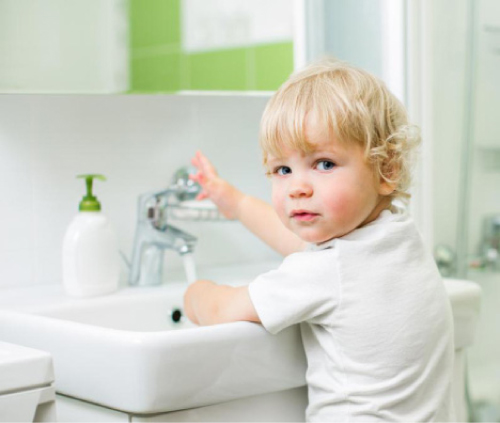WASHINGTON — The federal government on Friday banned more than a dozen chemicals long-used in antibacterial soaps, saying manufacturers failed to show they are safe and kill germs.
“We have no scientific evidence that they are any better than plain soap and water,” said Dr Janet Woodcock, the Food and Drug Administration’s (FDA) drug centre director, in a statement.
Friday’s decision primarily targets two once-ubiquitous ingredients — triclosan and triclocarban — that some limited research in animals suggests can interfere with hormone levels and spur drug-resistant bacteria.
The 19 banned chemicals have long been under scrutiny, and a cleaning industry spokesman said most companies have already removed them from their soaps and washes.
The FDA said it will allow companies more time to provide data on three additional chemicals, which are used in most antibacterial soaps sold today.
The agency told manufacturers nearly three years ago that they must show their products are safe and effective. Regulators said on Friday that they either did not receive any data from industry supporting a chemical’s use, or the data did not meet federal standards for proving safety and effectiveness. In the case of triclosan, regulators said they didn’t receive either human or animal studies showing the drug is safe or effective.
“Consumers may think antibacterial washes are more effective at preventing the spread of germs,” Woodcock said in a statement. “In fact, some data suggests that antibacterial ingredients may do more harm than good over the long term.”
Most of the research surrounding triclosan’s safety involves laboratory animals, including studies in rats that showed changes in testosterone, oestrogen and thyroid hormones. Some scientists worry that if it causes such changes in humans it could raise the risk of infertility, early puberty and even cancer — though no connection has been established.
Because the chemicals are known to kill some bacteria, even if they are no better than soap, experts also worry that routine use will help allow drug-resistant germs known a superbugs to emerge that cannot be killed by antibiotics.
FDA division chief Dr Theresa Michele said these potential risks outweighed the potential benefits of the chemicals, since manufacturers were unable to document any.
The FDA ban comes more than 40 years after Congress asked the agency to evaluate triclosan and dozens of other antiseptic ingredients. Ultimately, the government agreed to publish its findings only after a three-year legal battle with an environmental group, the Natural Resources Defence Council, which accused the FDA of delaying a decision on the safety of triclosan.
“Consumers have waited a long time for this sensible safeguard,” said Mae Wu, an attorney with the group.
Wu and others point to research by the Centres for Disease Control and Prevention that found triclosan in the urine of three-quarters of Americans tested for various chemicals. However, the agency states on its website out that many chemicals show up in urine without having any effect.
The FDA is now undertaking a sweeping reevaluation of soaps and washes used by consumers and health professionals.
The American Cleaning Institute, a cleaning chemical association, disputed the FDA’s findings, saying in a statement “the FDA already has in its hands data that shows the safety and effectiveness of antibacterial soaps”.
The group’s spokesman said companies are planning to submit data on three chemicals currently used by industry: benzalkonium chloride, benzethonium chloride and chloroxylenol. The FDA delayed making a decision on those chemicals for one year.
The FDA decision does not apply to hand sanitisers, most of which use alcohol rather than antibacterial chemicals.
